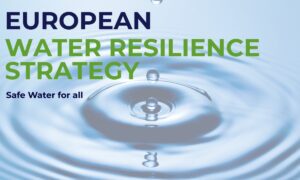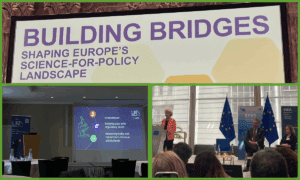The structured dialogue, held on 14 February, marks the nearing of the end of Bernhard Url’s 10 year EFSA directorship as his second term will end on 31 May 2024. Therefore, the discussion was primarily about the achievements of the previous 10 years, as well as aspects of this period that leave some room for improvement, however, participants also addressed upcoming challenges and policy issues.
Url began his address listing EFSA’s strengths gained in the last decade. He highlighted the positive feedback on the agency’s independence and impartiality, transparency and scientific methodological rigour. He also discussed EFSA’s engagement of its accredited stakeholders – one of which is EuChemS, regularly attending EFSA’s stakeholder meetings. He, however, highlighted that stronger collaboration, European level food safety initiatives – even new legislations -, and more resources could benefit EFSA in addressing upcoming challenges and risk preparedness. In addition, he mentioned the conflicts between high quality assessments and speed, admitting that the latter tends to be an issue – which could be addressed by allocating more resources to EFSA. Finally, before moving on to MEP questions, he praised the collaboration between ENVI and EFSA – expressing hope that this level of operation can be reached with the entire Parliament.
A number of MEPs raised questions related to more specific topics on the policy agenda. Maria Arena inquired about EFSA’s authority related to pesticides containing PFAS, and the lack of guidelines on Glyphosate’s evaluation. Glyphosate was also brought up by Anja Hazekamp, who mentioned the irony of having her first and last conversation with Bernhard Url about the same substance, illustrating the longevity of the controversy surrounding it. In response, the EFSA director said that a guidance document on pesticides and biodiversity is in development. He also explained that EFSA requires a mandate to act. The imbalance between industry-funded and independent studies was also discussed: Url explained that industry research is conducted under the same baseline, however industry often possesses more resources, hence they have a capacity to do more research. Further questions were raised mentioning Aspartame, New Genomic Techniques, and the “one substance, one assessment” collaboration between EFSA and the European Chemicals Agency (ECHA).
On the same day, in the afternoon, Commissioner for Climate Action, Wopke Hoekstra – who replaced Frans Timmermans last year – also held a structured dialogue with ENVI, where he highlighted his priorities: having EU climate policy moving forward on “two legs”, one being the transition to sustainability, the other is achieving this transition in a just and competitive manner. MEP-s later discussed with him his pleas at COP28 related to moving away from fossil fuels, as well as EU climate targets and policy gaps, amongst other topics.



